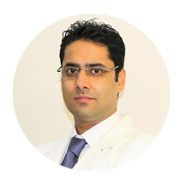Oral or Mouth cancer is a lump, ulcer or soreness appearing in the mouth. It includes the regions of lips, cheeks, mouth floor, sinuses & pharynx (throat). Here, at Dr. Bhutani’s Dental clinic, we have treated numerous cases of oral cancer & what’s even more surprising is the fact that they are on a rise.
Our dentists have gain widespread experience in the field of dentistry and aiming to give you an insight, they have enlisted the following details about oral cancer.
Detection
Early detection of the disease can be treated. A bit late, and such ulcers spread quickly like wildfire. If you observe constant changes in your mouth like swelling, numbness, sores or even difficulty in eating, make sure to get an Oral Dental Exam.
Main Causes
Our dentists have observed that cancer spreads mostly in men above the age of 40 who have twice the chance of getting affected than women. Cancer occurs when the lip or mouth cells start developing mutations in the DNA which allow the cancer cells to grow. The main causes are:
- Tobacco use: this is the most important factor which includes products like cigars, pipes, chewing tobacco, cigarettes etc.
- Excessive exposure of sun
- Heavy usage of alcohol
- Poor oral hygiene
- Chewing betel nuts
- A sexually transmitted virus called human papillomavirus (HPV) induces oral cancer
Symptoms of Mouth Cancer
- Loose teeth
- Unnecessary bleedings or numbness
- Swelling or lump formations
- Development of velvety white or red patches in mouth
- Tongue or jaw pain/stiffness
- Radical weight loss
- Stable sores in face, mouth or neck (for more than 2 weeks)
- Ear pain
- Chronic sore throat or change in voice
- Difficulty in chewing or swallowing
Treatments
With best equipment’s and world-class technology, we treat our anxious patients up to their satisfaction. There are multiple types of treatments and depending on the stage (from Roman numeral I to IV) & the patient’s needs, our dentists finalize a treatment.
- Surgery – There are 3 types of surgeries: removing tumour, removing the cancer spread in the mouth and reconstructing mouth. However, there is risk of bleeding and infection in surgeries.
- Radiation Therapy – High-energy beams like X-rays are used to kill cancer cells. It’s a very effective treatment for early-stage cancer & sometimes combined with chemotherapy (chemoradiation).
- Chemotherapy – If cancer grows back after surgery and radiation therapy (advanced stage), specific drugs & chemicals are used to kill cancer cells.
- Biological Therapy or Targeted Drug Therapy – There are some naturally-occurring substances like Cetuximab or Erbitux that affect the way cancer cells grow and divide (control).
Checkout Our Other Treatments:
- Tooth implant cost
- RCT Treatment
- Invisible Aligners Cost
- Dental Implant Clinic
- Best Dentist In India
FAQ's
Mouth cancer symptoms and signs might include:
-A mouth or lip sore that doesn’t go away
-A spot inside of your mouth that is either white or red
-Missing teeth
-An internal growth or bump in your mouth
-Difficulty swallowing or discomfort
The first stage of oral cancer is known as the pre cancerous or precancerous lesion stage. During this stage, the cells in the mouth begin to abnormally multiply and can form either benign or malignant tumours. Patients may experience symptoms such as sores that do not heal, changes in the feel and look of their mouth tissues, or pain in their jaws, mouth or throat. Visit your dentist regularly for an oral cancer screening to ensure early detection and treatment.
The survival rate for oral cancer depends on the stage at which it is diagnosed. According to CancerResearchUK, the 5-year relative survival rate for those diagnosed with mouth cancer is 68%, and the 10-year relative survival rate is 56%. Early detection is key in improving these figures, so it is important to ensure you are regularly attending dental checkups.
Yes, early detection and treatment of oral cancer can lead to successful outcomes, including full remission of the disease. It is important to visit your dentist regularly for screenings and be mindful of any changes or symptoms that could indicate a potential issue with oral health. Early diagnosis is the key to successfully treating oral cancer.

